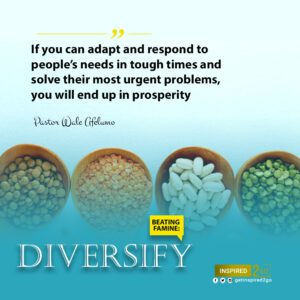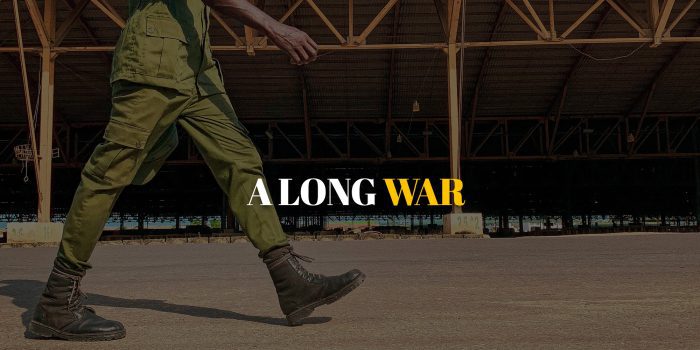So Naomi returned, and Ruth the Moabitess her daughter-in-law with her, who returned from the country of Moab. Now they came to Bethlehem at the beginning of barley harvest. – Ruth 1:22
REFERENCE
Naomi and Ruth returned to Bethlehem from Moab at the beginning of the barley harvest; so, it was barley that Ruth went out to glean at Boaz’s field. It has been discovered that barley is cheaper than wheat and easier to cook, so it was actually the food for poor people in the days of famine because they couldn’t afford wheat which was more like their staple food but more expensive.
As a business owner, Boaz must have diversified his business to suit the needs of the people at that time. Even though he may have continued selling wheat, he may have done it in small proportions and put the bulk of his investments on barley – the fastest moving product in the days of famine, and that may have accounted as one reason he survived, beat the famine, and prospered afterwards.
In economic downturns, as has been the experience in recent times, people look for what is affordable, not luxury. Also as a business person, cash is king, and you need to be liquid to fulfill your financial obligations. Thus, if the economic trends are threatening for your business, consider diversifying to things people need – necessities, things they will look for, no matter how hard things get. Think volume and not high price; selling 200 items at $10 dollars in a week is better than having an item worth $1000 on the shelf for one month. Think what people can afford, so that you always have liquidity. Engage in things you need less capital to execute, perhaps, because of a training or strength you have in that area.
Jesus Christ in John 15:2 instructed us to cut down a tree that isn’t producing fruits (John 15:2), don’t flog a dead horse but rather jump on a living donkey, because a living dog is better than a dead lion (Ecclesiastes 9:4).
Diversification is one way to beat a famine. Human beings are first, ‘animals of survival’ or of self-preservation. So, no matter how hard things may be, there are still basic essentials that people will need. The most basic of such needs is food; therefore, you can engage in the food supply business, one way or the other. It could be by farming, processing, storage, transporting from one place to another, packaging and selling foodstuff or even operating a restaurant. When there was famine in Egypt, Joseph invested in food and transferred the whole wealth of the nations to Egypt; all he did was sell grains (Genesis 41:48).
You can also think of getting into the business of providing affordable internet solutions and developing Apps in this digital age. If you can adapt and respond to people’s needs in tough times and solve their most urgent problems, you will end up in prosperity.
ADDITIONAL STUDY
Proverbs 27:12, James 4:13-15, & Ecclesiastes 11:2 (ERV)
REFLECTION
Is your business positioned to answer the needs of people in these tough times?
Do you know your customers/market well enough to be able to diversify to adequately and appropriately respond?
List out some other things you think you can do that people around will definitely need.





